The most common question asked on Lonely Speck answered for Canon shooters!
What is the best lens for astrophotography? The one that collects the most light.
Below is a list of the highest scoring lenses for untracked nightscape photography and astrophotography. The score is a direct representation of light gathering capabilities based on the formula:
Score = (aperture area) × (angular area) × (suggested shutter speed)
Where the shutter speed is the longest suggested shutter speed in seconds based on the “500 Rule” (500/focal length). Aperture area is the surface area calculation of the clear aperture of the lens and the angular area is the angular field of view in square radians. This score is a mathematical calculation based purely on some simple physics. It doesn’t account for other considerations like the lens’s build quality or optical aberrations but it’s a good gauge of overall light gathering capability. You can also see the complete list of scores here, complete with calculations and further explanation.
All of the lenses listed here are my personal suggestions for photographers looking to get the absolute best astrophotography results with their camera. If using the given camera mount, these are the lenses that I would use. Most of these lenses are manual focus lenses by Rokinon which also tend to be much more affordable than their autofocus Canon counterparts. Additionally, most of the Rokinon lenses are sharper and tend to exhibit less coma aberration than their Canon counterparts. If you’re willing to learn how to use manual focus, Rokinon lenses are spectacular performers.
If you would like to know more about the thoughts that went into creating this list, please read my article on how to pick a lens for Milky Way photography.
EF Mount (Full Frame and APS-C)
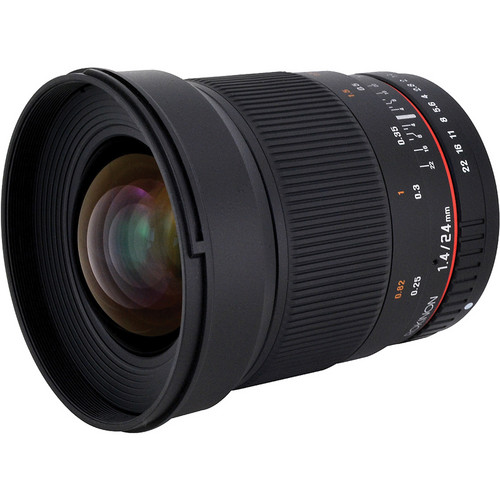
24mm/1.4: Rokinon 24mm f/1.4 ED AS UMC ( Amazon / B&H )
- The best night photography and astrophotography lens you can buy. Excellently sharp, especially when stopped to f/2. Manual focus.
- My full review of the Rokinon 24mm f/1.4
- Score: 2869
- This is my go-to lens for astrophotography on a full-frame DSLR. It’s fast, wide and shows very little aberration problems. Still my personal favorite for Canon full frame DSLRs like the 6D, 5D Mark III and 5DS/R cameras.
- Sample from the Rokinon 24mm f/1.4:
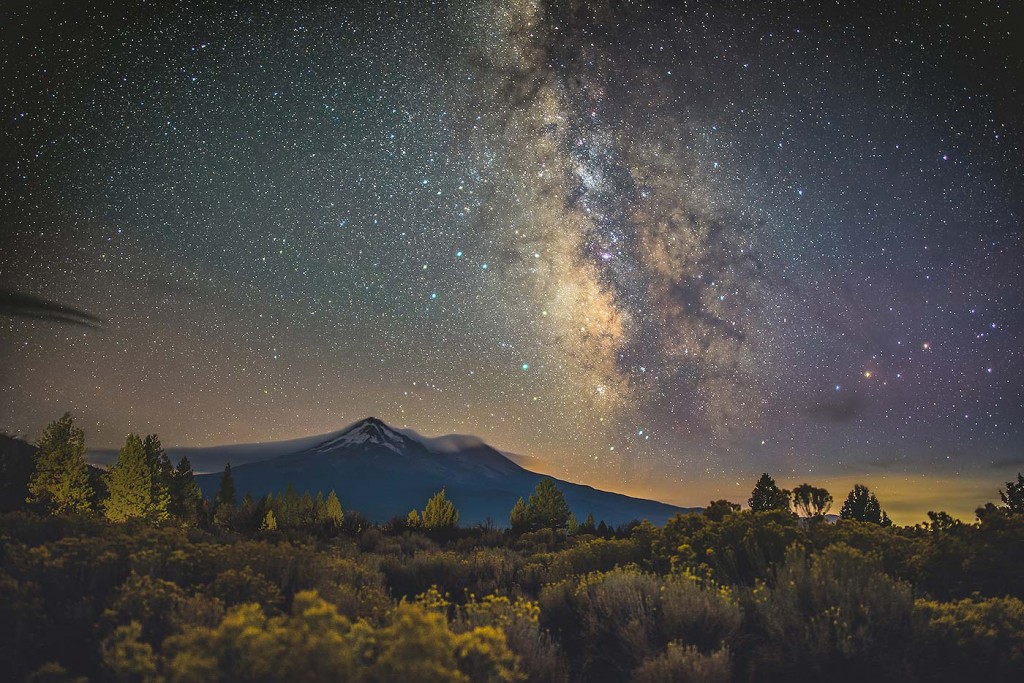
35mm/1.4: Rokinon 35mm f/1.4 US UMC ( Amazon / B&H )
or Sigma 35mm f/1.4 DG HSM Art ( Amazon / B&H )
- Standard wide angle for tighter landscapes or stitching multiple exposures into larger panoramas. Rokinon is manual focus, Sigma is autofocus.
- Score: 2084
14mm/2.8: Rokinon 14mm f/2.8 IF ED UMC ( Amazon / B&H )
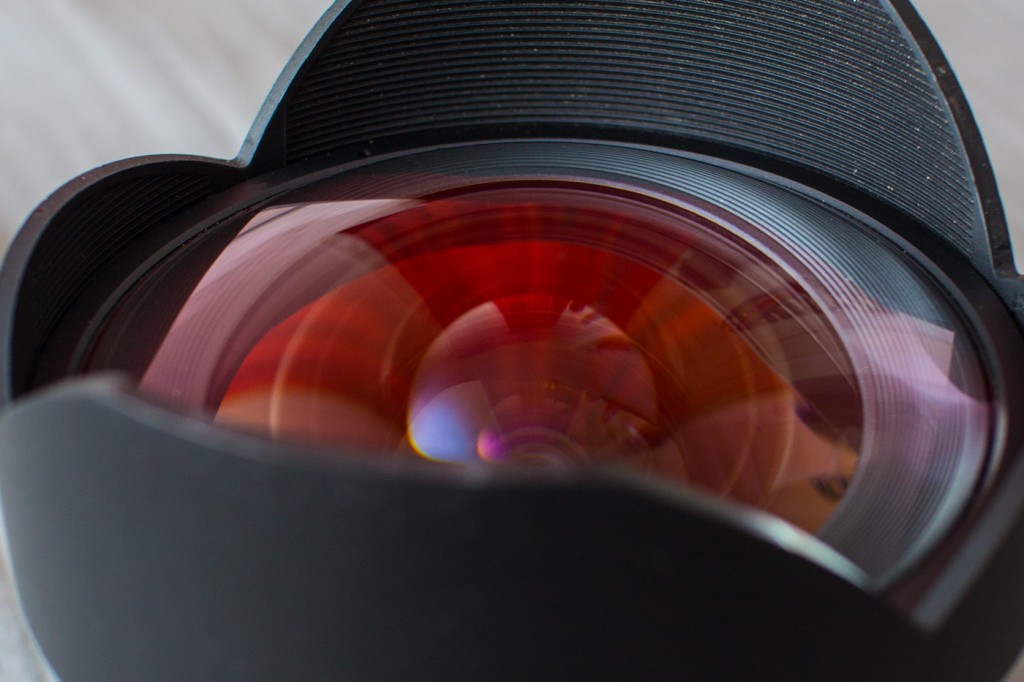
- Essential ultra-wide angle for large sweeping landscapes. Manual focus. One of the most affordable full frame nightscape lenses.
- My full review of the Rokinon 14mm f/2.8
- Score: 1032
- Sample image from the Rokinon 14mm f/2.8:
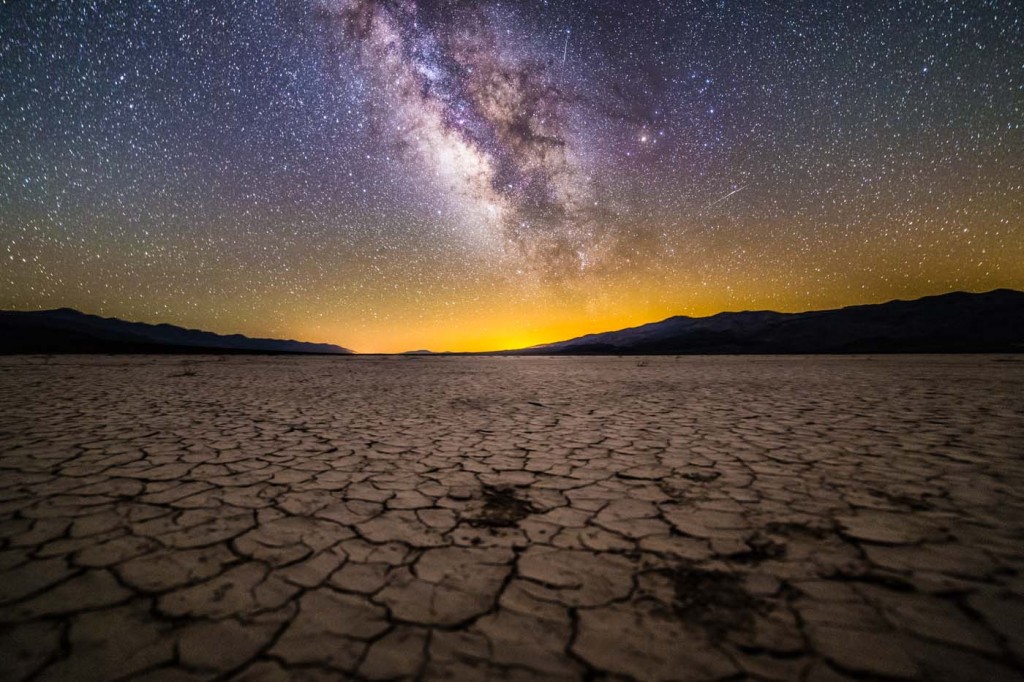
EF-S Mount (APS-C Only)
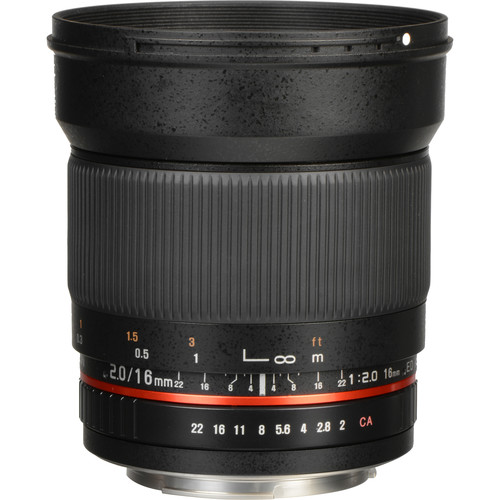
16mm/2.0: Rokinon 16mm f/2.0 ED AS UMC CS ( Amazon / B&H )
- The best combination of wide angle and large aperture. Manual focus.
- Score: 1875
10mm/2.8: Rokinon 10mm f/2.8 ED AS NCS CS ( B&H )
- APS-C alternative to the Rokinon 14mm/2.8. Excellent for ultra-wide angle landscapes. Manual focus.
- Score: 1184
11mm/2.8: Tokina 11-16 f/2.8 AT-X PRO DX II ( Amazon / B&H )
- Covers the same range as the two previous lenses combined. Excellent super wide angle zoom with autofocus.
- Score: 1149 (at 11mm)
EF-M Mount (APS-C Mirrorless)
12mm/2.0: Rokinon 12mm f/2.0 NCS CS ( Amazon / B&H )
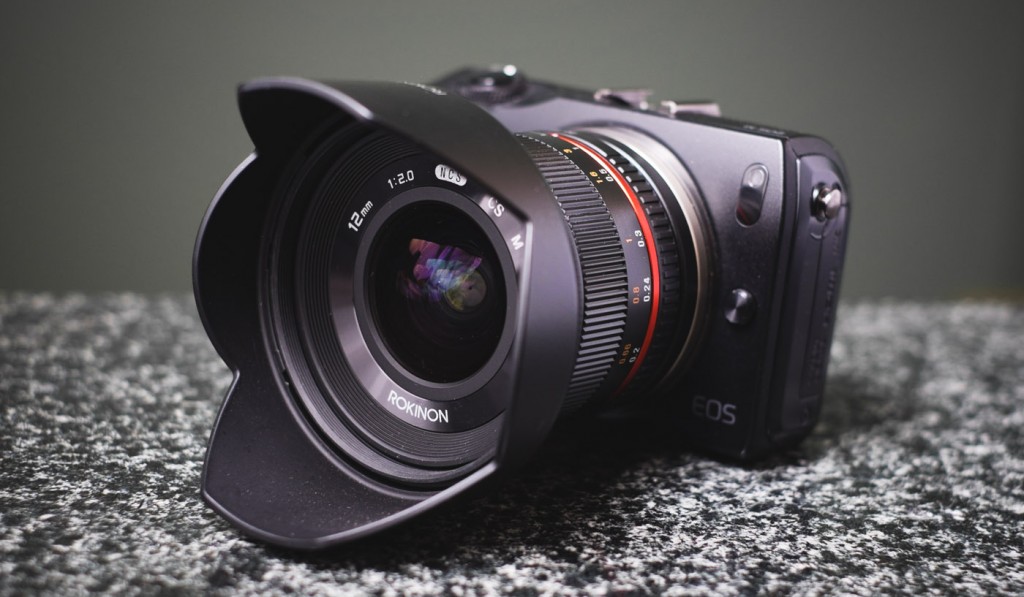
- Best lens for astrophotography on a mirrorless system. Nice and compact, best combination of super-wide field of view and large aperture.
- Score: 2176
- Sample image from the Rokinon 12mm f/2:
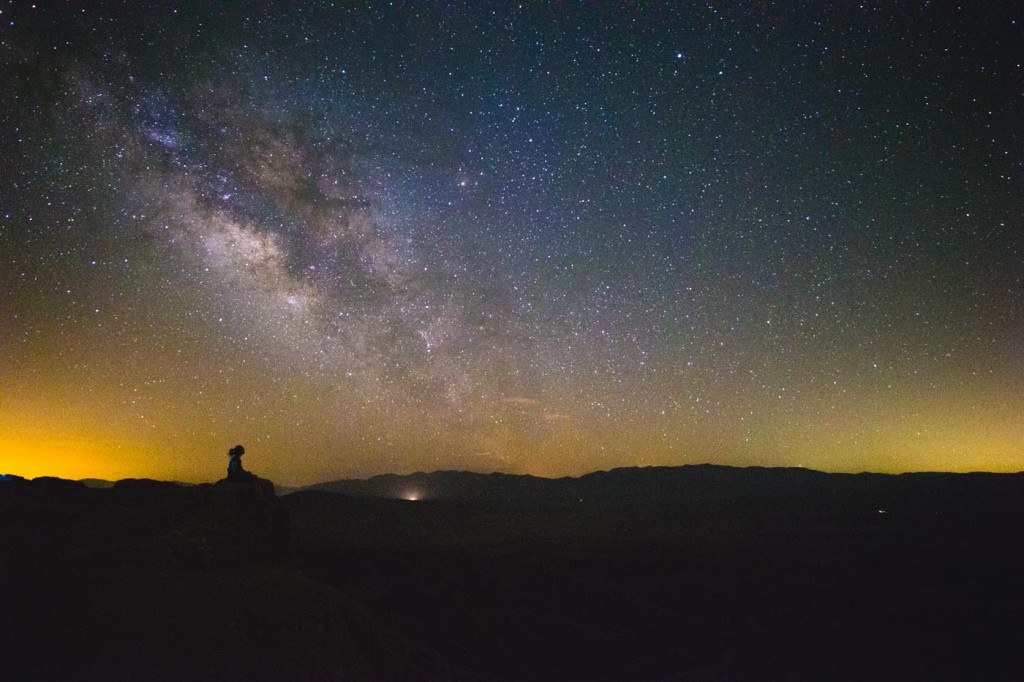
22mm/2.0: Canon EF-M 22mm f/2.0 STM ( Amazon / B&H )

- Surprisingly sharp and extremely compact lens. Also very cheap. Standard wide angle view makes it good for panorama stitches.
- Score: 1505
- Sample image from the Canon EF-M 22mm f/2 STM:
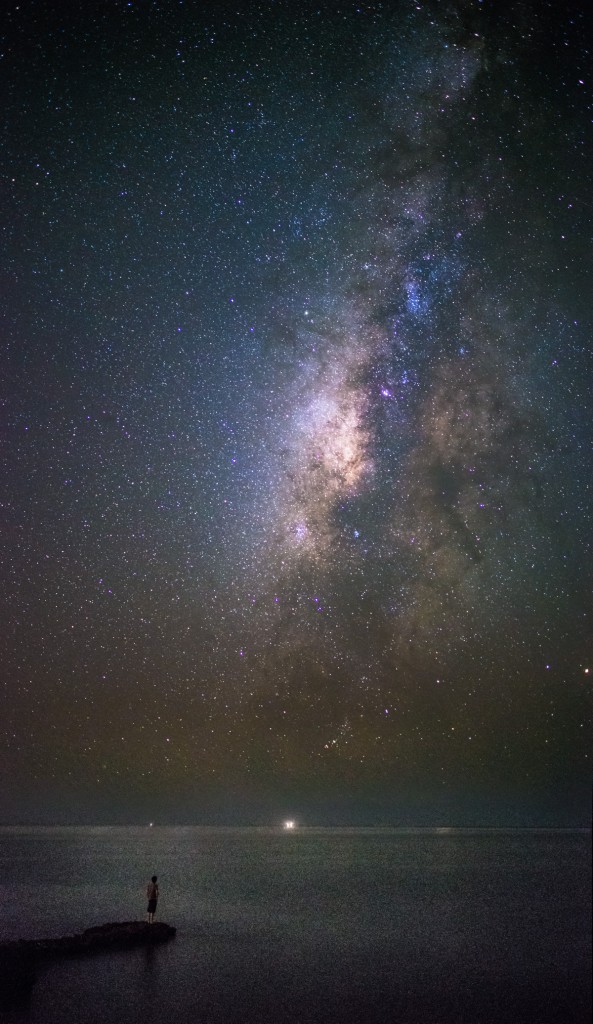
8mm/2.8: Rokinon 8mm/2.8 Fisheye II ( Amazon / B&H )
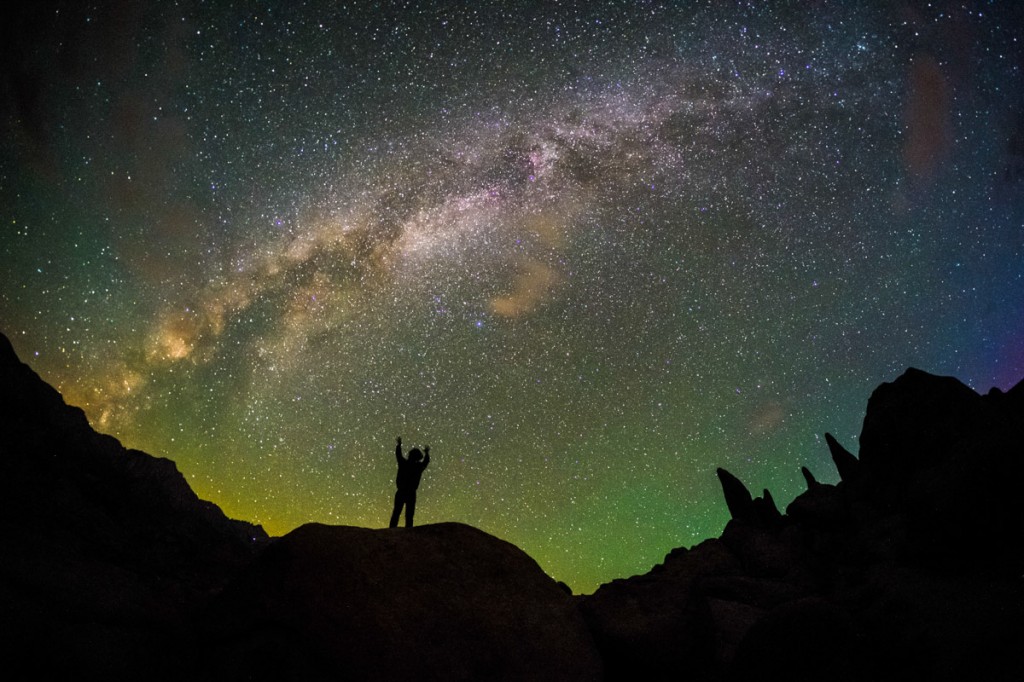
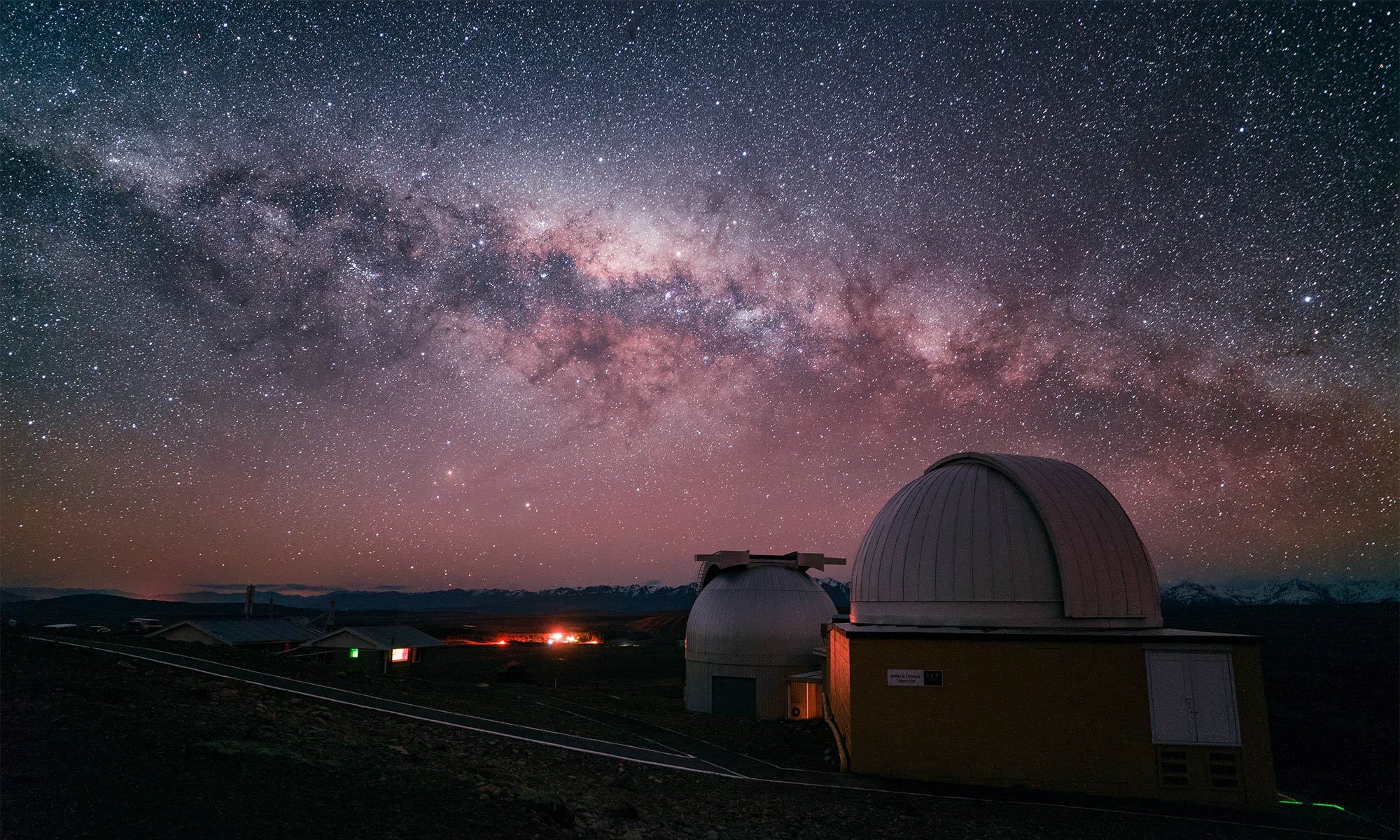
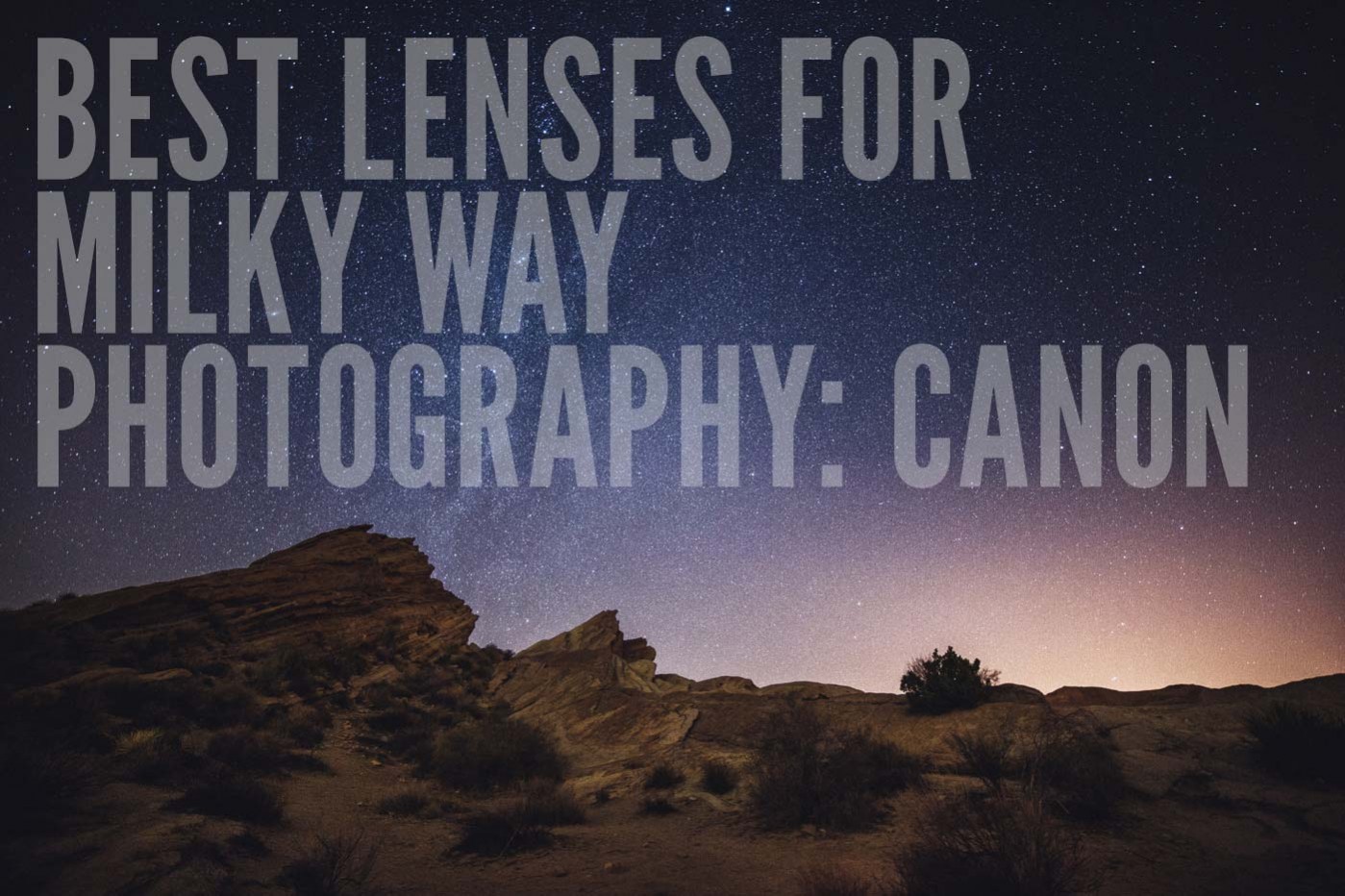
Hi Ian
Thanks for all of the great advice – Im learning loads
I have a canon 60d and Im wondering how it ranks when it comes to Astrophotography
Also I am looking to upgrade my lens – I have the standard one that comes with the kit first day but as per your above info the “The Rokinon 24mm f/1.4 ED AS UMC ” is the best option ?
Thanks for your advice
Glenn
On the 60D, a shorter lens is recommended for a wider field of view. The Tokina 11-16mm is particularly recommended.
I recently returned from a three-week vacation in Namibia where I also tried my luck on milky way photography a couple of times. The most suitable lens I own is the 18-55 f/3.5-5.6 kit lens, and while I managed some reasonable results (who wouldn’t with such dark skies and stunning landscapes?), the optical quality is rather disappointing. Not fast, tons of coma and weird distortion …
So I was ready to fork out the money for a Samyang 14 f/2.8 until I discovered this article. I wasn’t aware that a Samyang 16 f/2 lens exists for (Pentax) APS-C! It’s not as wide, but doesn’t seem to show the weird moustache distortion of its FF brother and can even take filters (big thing for landscape photography). Jackpot!
Thanks for the info!
My pleasure! The 16mm/2.0 should be a great lens.
Hi Ian
Thanks for you article, it is very informative! 🙂
I have a Canon 70D and 1D Mk II (which I don’t use a great deal since getting the 70D)
I am dying to enter the world of Astro-photography so am looking into a wide angle lens, I would also like to use it for general use though.
My problem with the awesome above mentioned lenses (particaulary the Rokinon) is that a lot of people have said they have had to send theirs back as they had issues with them which is fine BUT I live in Zimbabwe and if I buy one of them a friend will bring it for me from the UK so ideally I need an awesome lens that is reliable and won’t need sending back (unless there is an agent or something here!)
Any suggestion would be HUGELY appreciated! 🙂
Thanks in advance
Jess
Jess, I would probably opt for the Tokina 11-16mm/2.8 or 11-20mm/2.8.
Thank you very much for your advice! 🙂 Much appreciated!
Hi Ian,
I use a 7D ii and was looking at a canon 16-35mm 2.8mm for landscape and now Milky Way. I see the Rokinon 14mm 1.4 for full frame is great and highly recommended.
Should I still go with the canon 16-35mm 2.8mm or something like the Rokinon 14mm
Mark, have you considered the Tokina 11-16mm f/2.8 or even the newly released 11-20mm/2.8? Those are the lenses I would prefer the most for the 7DII.
I would love a vendor in europe that would sell the Canon Rokinon 14mm ultra wide lens.
Great website Ian, a very informative read.
In response to Handpuppe below, the Samyang lenses are sold in Europe, the Rokinon brand name is only used for the US market.
Excellent article. Have you tried the new Sigma 24mm f/1.4 Art? Interested to know if that would be better than the Rokinon 24mm f/1.4? Thank you!
We’re working on that review this month. Expect the Sigma to be slightly sharper but with a little more aberration in the corners at f/1.4. Results to be posted soon.